



December 07, 2019
Last month I received a set of completed PCBs for our new version of the Tonal Plexus, the TPX260. Our first prototype is a 5-octave controller, shown here in its current form, with no added hardware and no enclosure.

The default tuning (a.k.a. "master tuning") of the Tonal Plexus is 205ET. That means 205 equally spaced tones per octave where the smallest step is just under 6 cents (see here for more information). Whereas previous Tonal Plexus keyboards had 211 keys per octave, with 6 of the keys being duplicates in the master tuning, the TPX260 has (as the name is supposed to remind you) 260 keys per octave, with 55 of those being master tuning duplicates.
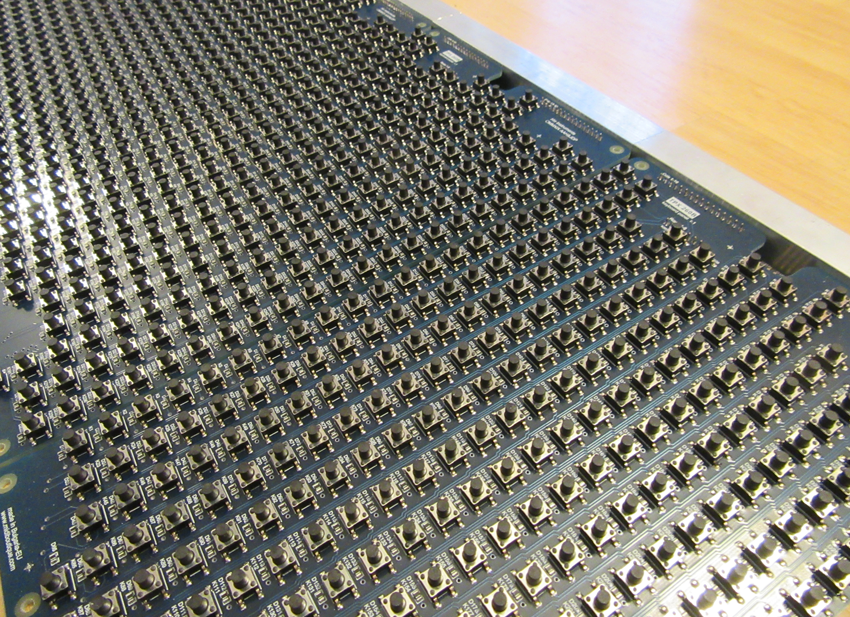
Each octave of a Tonal Plexus spans two MIDI channels. The MIDI standard allows 128 notes per channel, so you can see that 2 channels does not give us 260, but rather 256 keys to work with. For this reason, 4 of the keys on the TPX260 are actually hard-wired electrical duplicates. The maximum number of unique pitches that can be programmed per octave is 256. Four DIP switches are used to set the MIDI channels assigned to each octave. These switches are located on a decoder board underneath the keys. One of the small improvements we made to our new design was to allow these switches to be accessed from the top (the old design required disassembly to get to the switches!) The cut-out also allows users to lift octave boards to easily swap them out if an octave should need to be replaced.
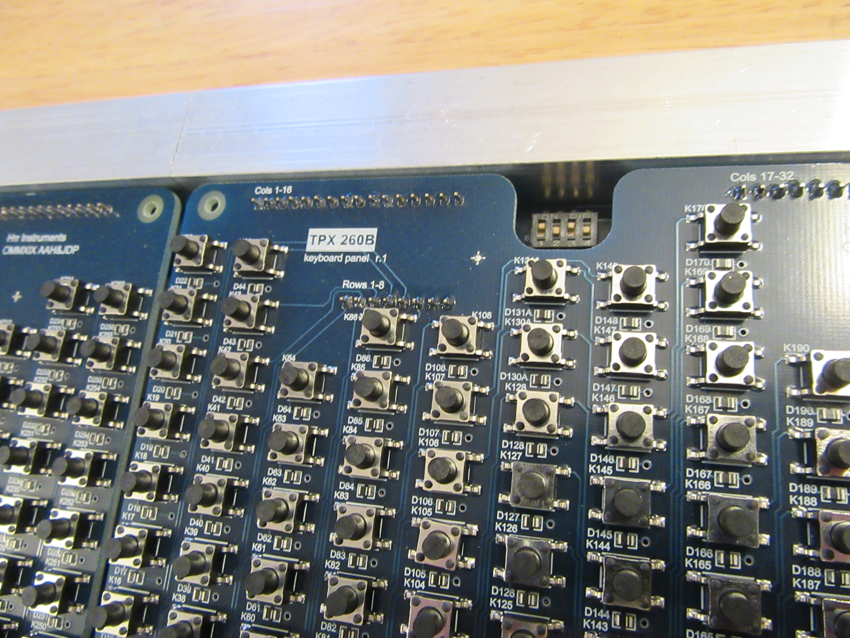
The TPX260 produces MIDI output, sent over USB or MIDI DIN OUT, and includes a standard sustain pedal input. Two potentiometers (knobs or pedals) are also used to control MIDI note velocities and volume. [NOTE: There are two potentiometers in the image below which are not labeled, but you can see them to the right between the brain and the octaves.]
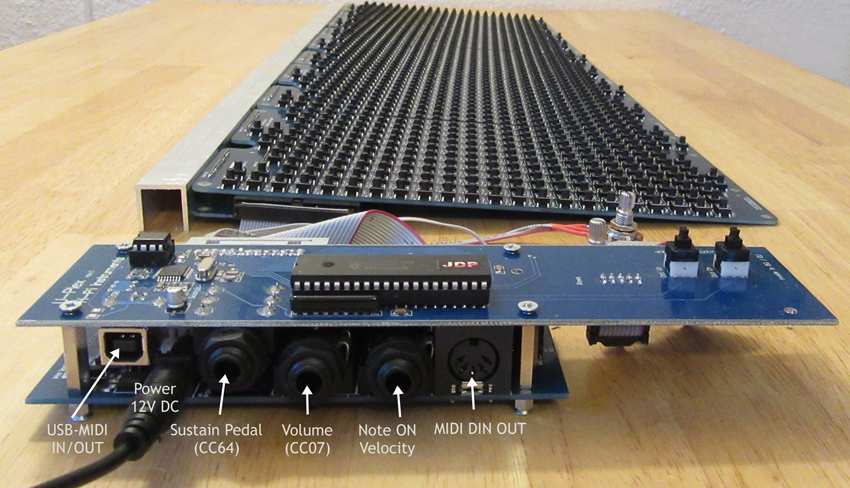
You may notice the I/O is designed as two stacked boards. Why did we do this? Because the top board is actually a U-Plex "brain". The U-Plex was the USB version of the TPX, a MIDI controller produced as a more affordable option compared to the TPX line, which featured only USB connection with a sustain pedal input. In 2010, I had overestimated the number of U-Plex keyboards I could build, so that when I stopped making them four years later, quite a lot of these "brains" were left over. When planning the TPX260, I decided to make use of these existing boards, and designed the lower board which expands the capabilities of the U-Plex brain to add more controls and an interface for the TPX260.
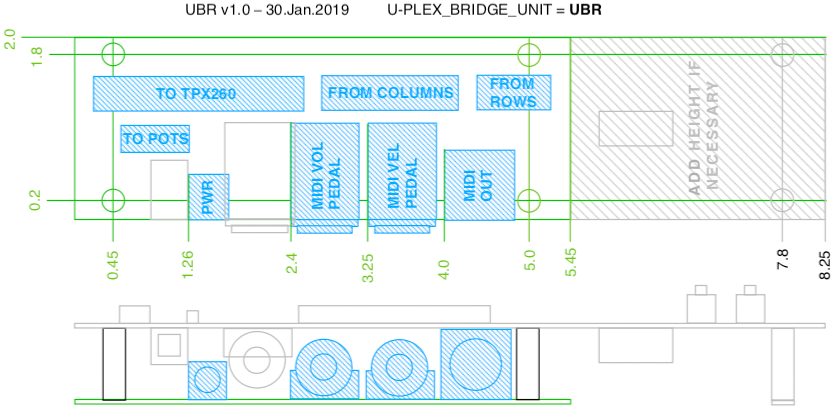
Additionally, this lower board has an input for a tuning module (marked "MIDI proc" below). This means we can have TPX260 keyboards that produce pre-tuned microtonal output like the TPX series did, or they can produce only raw MIDI output like the U-Plex (but also with the DIN output option).
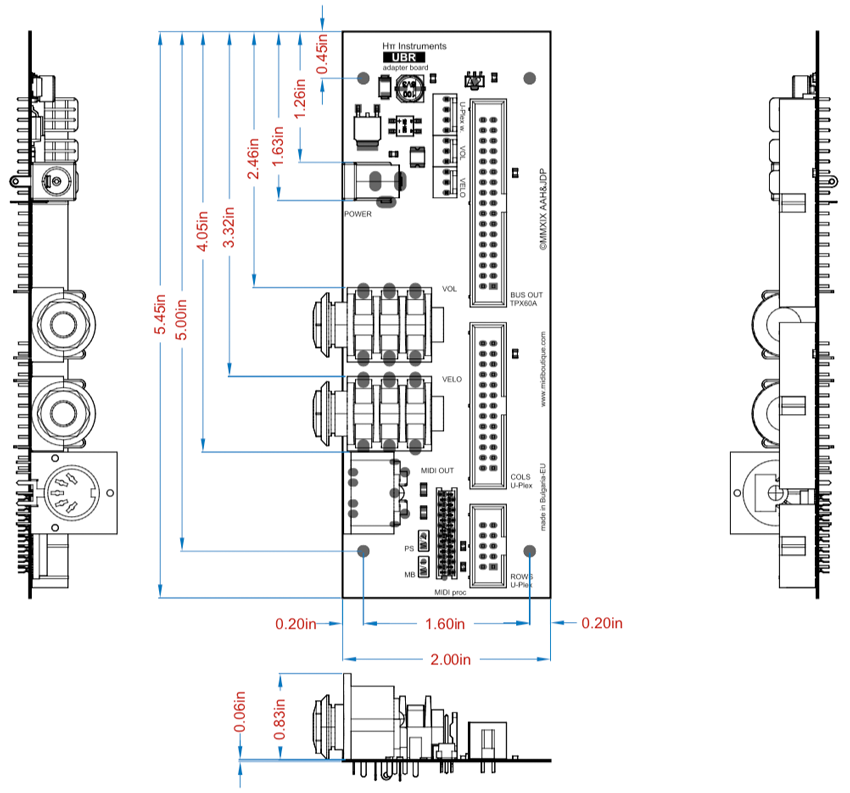
The old TPX line had a built-in GM synth option. This worked, but the technology was a little dated. With the TPX260 we can now get immediate microtonal audio output simply by plugging in our FLASH synth!
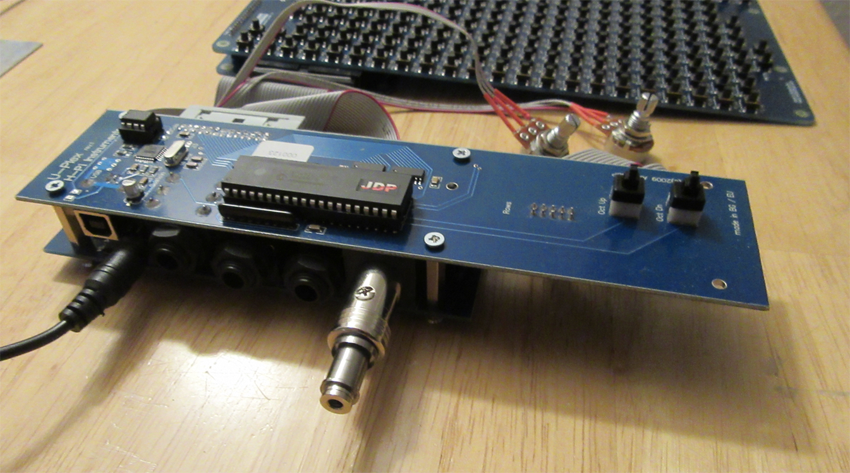
So that's where we are currently with the TPX260. We have a working prototype, but there is still a lot of work to do here. For example, the keys of the TPX and U-Plex keyboards had individual plastic caps. These caps carry a high cost and are difficult to consistently source, so we're considering some other possible alternatives for this keyboard. Whereas the enclosures of previous keyboards were made of wood and plastic, the body of the TPX260 will be made of metal. We've been experimenting with a modular design where octaves can be added or removed by users, but this may not be possible for the finished product. We do also plan to offer keyboards as DIY kits which will allow modular flexibility.
How the TPX260 will take shape as a product remains somewhat to be seen, but we'll be developing it further in 2020. If you would like to stay informed about our progress, please subscribe to our announcements newsletter.
Best Regards,
Aaron
[ Showing 1 entry | Previous entry | Next entry | Show all entries ]